Meet our awardees
TSP in collaboration with Department of Higher Education and Training (DHET), is supporting six projects in South Africa with ODA funding under the UK government’s new International Science Partnership Fund.
Grant recipients have been awarded up to £50,000 for one year research collaboration and knowledge sharing projects between South Africa and the UK , focusing on clean energy, affordable healthcare, or as additional funding for existing projects.
A transformative staff enhancement project for implementation of innovative integrated engineering curricula across SA HE institutions
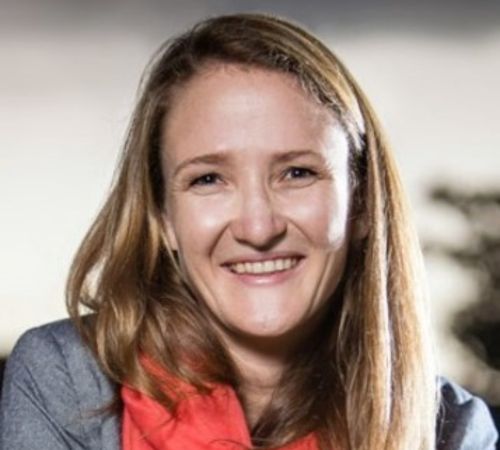
Dr Lelanie Smith | University of Pretoria
UK Project leads:
- Professor John Mitchell | University College London
Industry partner:
- Industry Liaison and President of SASEE
- Vaal University of Technology
The project is to support existing curriculum development teams establish the implementation of innovative experiential learning curricula with the support from UCL. These teams as well as teams from institutions who have not identified champions will be supported through a 400-hour mentoring program where staff are developed to set up and run similar activities at their institutions.
Throughout the programme there will be short workshops, seminars and mentoring sessions to ensure the collective engineering academic community has access to this support. ECSA and industry collaborations will also provide opportunities to design locally relevant projects with the intentional development of graduate attributes, feedback mechanisms, and assessment tools. These will be shared across institutions.
The main goals of this collaboration are:
- Mentor and grow engineering academic staff to become expert facilitators of active integrated learning;
- Co-develop Engineering Council of South Africa (ECSA) support structures for programme accreditation towards facilitation of changes in the curriculum and including industry partners in the development of curricula.
Bytes over Lights: Levelling up community connectivity with cost-effective optical wireless communication
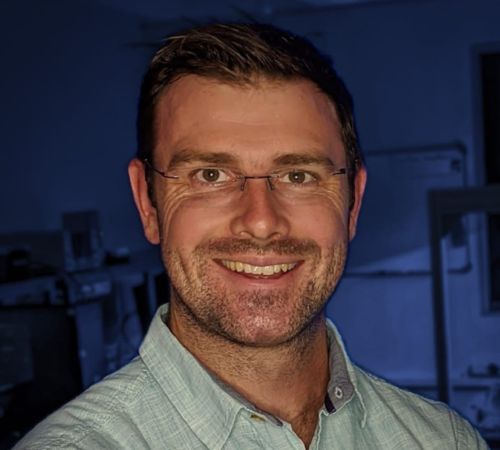
Dr Mitchell Arij Cox | University of the Witwatersrand
UK Project leads:
- Professor Martin Lavery | Universtiy of Glasgow
Industry partner:
- Riot Network
- PeCO Power
The project aims to narrow the digital divide through collaboration with existing technologies. Partnering with RIOT Network and PeCo Power, the team will utilise innovative optical wireless technology from the previous TSP project to enhance RIOT's community WiFi network pilot projects, improving speed, reliability, and economic viability. Devices will incorporate PeCo’s solar power solution to ensure consistent operation, particularly crucial during South Africa's frequent blackouts.
With this foundation, the team plans to achieve several objectives: they will install prototypes into RIOT's pilot network, upgrading and integrating them to enhance the community network. They will also deploy network telemetry, using privacy-conscious, industry-standard methods to understand how the community utilises their internet connections. Additionally, they will publish a roadmap to internet access, drawing on insights gathered and stakeholder engagement to lay a foundation for future endeavours.
Empowerment of people with disabilities through integration of eco-energy systems and sustainable garment processing (Eco-ubulumko)

Adelaide Margaret Sheik | University of Johannesburg
UK Project leads:
- Professor M Emad Farrag | Glasgow Caledonian University
Industry partner:
- Jesse Naidoo | Clothes to Good
Clothes to Good (CTG) is a social enterprise focusing on recycling, upcycling and down-cycling, aiming for zero waste. One of the key projects at CTG uses denim, to craft weighted products for individuals grappling with conditions like autism, ADHD, and anxiety. The approach involves making these items through small-scale home operations while tending to children with disabilities. The project aims to cultivate a sustainable society and inclusive economy by combining hybrid renewable energy sources with garment recycling processes. Drawing on Glasgow Caledonian University’s (GCU) expertise in developing hybrid systems, with the involvement of the University of Johannesburg’s (UJs) engineering department, including wind turbines and PV-solar, the project seeks to supply clean energy for recycling garments.
Furthermore, both UJ and GCU included the Fashion Design Department and UJ’s Business Management department to create an interdisciplinary team to add value to the overall project objectives. Additionally, CTG empowers families and communities caring for individuals with disabilities, enabling them to access electricity and continue working from home. This initiative encourages job creation, enterprise development, and inclusion in the fashion industry while curbing textile waste. Knowledge exchange between South Africa and the UK will facilitate collaboration in addressing sustainability challenges and supporting disadvantaged communities.
TUT & UoS Solar vehicle engineering project: building on prior success
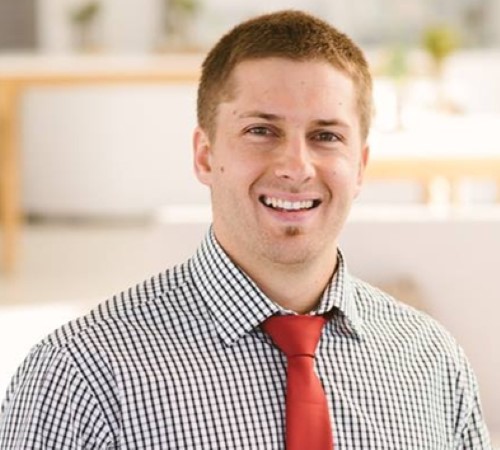
Dr Christiaan Oosthuizen | Tshwane University of Technology
UK Project leads:
- Professor Andy Cruden and Professor David Richards | University of Southampton
Industry partner:
- Advanced Materials Technology
- Ordiphase
This project is a continuation of an existing partnership established and maintained through IAPP1617\5 which was completed in 2019. Since then, the project has gained traction and developed another world-class solar vehicle, SunChaser4, through local follow-up funding and strong industry partnerships. The newest development has been so successful that the South African Government officially applauded the success of the innovation during a national parliamentary assembly on 15 March 2022 which can be seen on page 7 of the minutes.
This continuation project will build on knowledge and skills obtained from the previous collaboration and aim to develop a more sustainable clean energy transportation prototype (with two seats) by ensuring systems and sub-systems adhere to the South African Bureau of Standards for future homologation of the solar electric vehicle in the L7 category (mass and traction power restriction only) which should enable further funding towards possible commercialisation.
Transforming research outputs into industry tools and capacity in support of the National Flood Studies Programme in South Africa
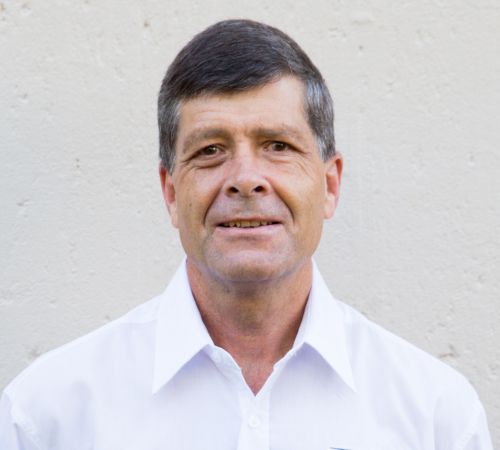
Professor Jeffrey Colin Smithers | University of Kwazulu-Natal
UK Project leads:
- Dr Thomas Kjeldsen | University of Bath
Industry Partners:
- National Flood Studies Programme
- University of Pretoria | Central University of Technology | Stellenbosch University
The National Flood Studies Programme (NFSP) in South Africa commenced in 2014 to update flood risk assessment methods. It has concluded eight funded research projects, with seven PhDs and 17 Master's students graduating from four universities. Additionally, it has published more than 26 journal papers and presented over 30 conference papers. Support from two IAPP projects has aided its execution.
This proposed initiative will expand on these accomplishments with the following objectives: Supporting collaboration and communication between researchers and industry, contributing to flood risk assessment capacity development in industry, converting research outcomes into software tools, and collating flood risk assessment data and information. Planned activities include international knowledge exchange, a research workshop, a training course, software tool development, and establishing an archive to enhance flood risk assessment in industry.
Unlocking the Potential of Alternative Building Technologies and Informal Construction Strategies in Sustainable Housing Provision
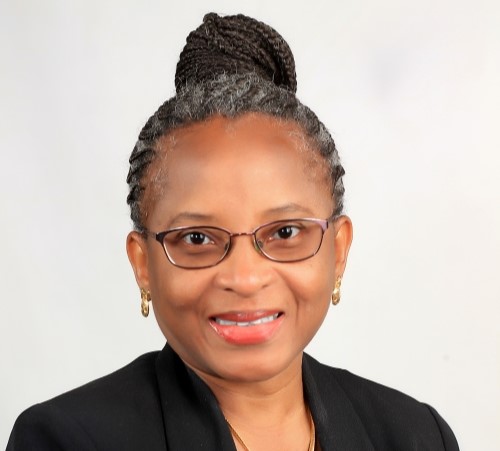
Professor Abimbola Windapo | University of Cape Town
UK Project leads:
- Professor Frencesco Pomponi | Edinburgh Napier University
Industry partner:
- National Home Builders registration Council
- City of Cape Town | Central University of Technology
The project aims to integrate Alternative Building Technologies (ABTs) into the supply chain to enhance sustainable housing and tackle limitations of conventional materials. It focuses on improving informal housing construction in urban poor communities, which is vital due to growing demand and a significant backlog in affordable housing. Activities include researching and documenting informal housing practices, involving communities in building top structures with ABTs, and evaluating results.
Additionally, it identifies where formal housing solutions and ABTs overlap, engages stakeholders to promote ABT adoption, and advocates for policy integration. Ultimately, the project aims to raise awareness of ABT potential and improve their usability by illustrating how these materials can be incorporated into the supply chain and informal housing construction.
